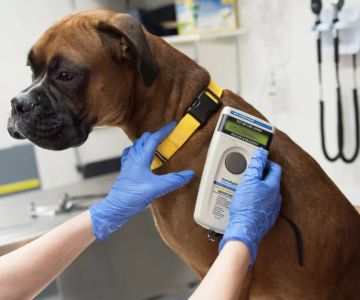- 1-Understanding-Veterinary-Career-Path
- 2-Common-Majors-for-Preparing-Veterinary-School
- 3-Importance-of-Pre-Veterinary-Studies
- 4-Key-Coursework-and-Skills-Needed
- 5-Real-Life-Student-Experiences-and-Advice
- 6-Preparing-for-Veterinary-School-Admissions
1. Understanding Veterinary Career Path
To answer the question what major do you need to be a veterinarian, it's important to understand the educational journey. Becoming a veterinarian requires completing an undergraduate degree followed by veterinary school. While no single major is mandatory, selecting one that covers essential science prerequisites is critical.
The path demands strong foundations in biology, chemistry, and animal science to succeed in veterinary studies and clinical practice.
2. Common Majors for Preparing Veterinary School
Popular majors include Biology, Animal Science, Zoology, and Biomedical Sciences. These majors provide in-depth knowledge of animal biology, physiology, and disease processes, aligning well with veterinary school requirements.
Some students choose interdisciplinary programs combining biology with chemistry or environmental science to broaden their expertise.
3. Importance of Pre-Veterinary Studies
Many universities offer pre-veterinary tracks that tailor courses to veterinary school admissions criteria. These tracks ensure students complete necessary science coursework such as organic chemistry, physics, and microbiology while gaining relevant animal experience.
Engaging in internships, volunteering at clinics, and research strengthens applications and practical skills.
4. Key Coursework and Skills Needed
Essential courses include anatomy, physiology, biochemistry, genetics, and animal nutrition. Developing strong communication, problem-solving, and critical thinking skills is equally important for effective veterinary practice.
Students should also cultivate empathy and adaptability, which are vital for patient care and client interactions.
5. Real-Life Student Experiences and Advice
Emma, a pre-veterinary student, shares: “Choosing Animal Science helped me gain hands-on experience with livestock, which made my application stand out. Balancing coursework with volunteering was challenging but rewarding.”
Such insights illustrate how thoughtful major selection and proactive engagement enhance veterinary school readiness.
6. Preparing for Veterinary School Admissions
Besides major choice, maintaining a high GPA, excelling in the GRE or other entrance exams, and securing strong recommendation letters are crucial. Researching veterinary programs’ specific requirements ensures targeted preparation.
For guidance on course selection, application tips, and career planning, explore our resources and products designed to support aspiring veterinarians in their journey.











